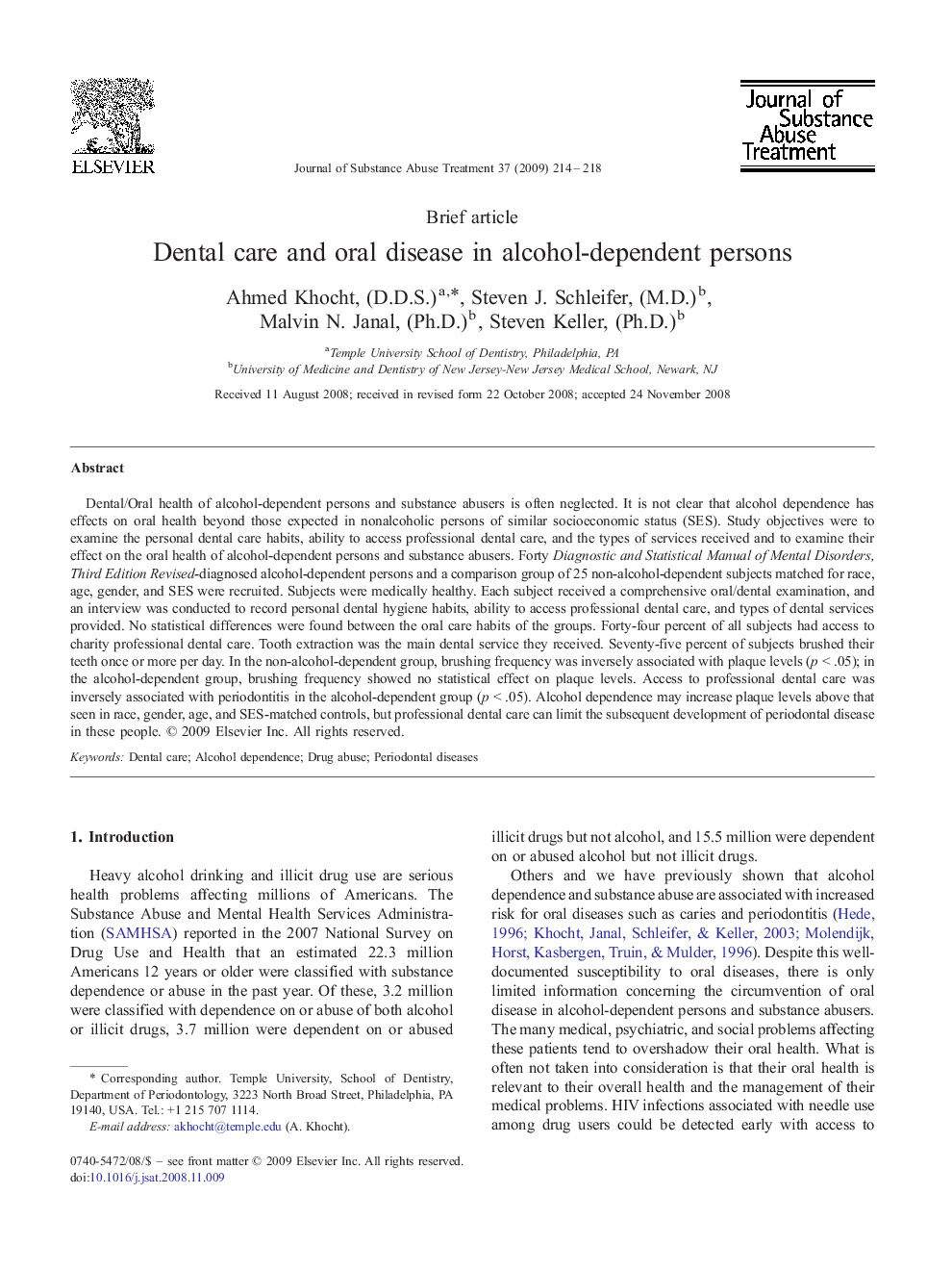| Article ID | Journal | Published Year | Pages | File Type |
|---|---|---|---|---|
| 328272 | Journal of Substance Abuse Treatment | 2009 | 5 Pages |
Dental/Oral health of alcohol-dependent persons and substance abusers is often neglected. It is not clear that alcohol dependence has effects on oral health beyond those expected in nonalcoholic persons of similar socioeconomic status (SES). Study objectives were to examine the personal dental care habits, ability to access professional dental care, and the types of services received and to examine their effect on the oral health of alcohol-dependent persons and substance abusers. Forty Diagnostic and Statistical Manual of Mental Disorders, Third Edition Revised-diagnosed alcohol-dependent persons and a comparison group of 25 non-alcohol-dependent subjects matched for race, age, gender, and SES were recruited. Subjects were medically healthy. Each subject received a comprehensive oral/dental examination, and an interview was conducted to record personal dental hygiene habits, ability to access professional dental care, and types of dental services provided. No statistical differences were found between the oral care habits of the groups. Forty-four percent of all subjects had access to charity professional dental care. Tooth extraction was the main dental service they received. Seventy-five percent of subjects brushed their teeth once or more per day. In the non-alcohol-dependent group, brushing frequency was inversely associated with plaque levels (p < .05); in the alcohol-dependent group, brushing frequency showed no statistical effect on plaque levels. Access to professional dental care was inversely associated with periodontitis in the alcohol-dependent group (p < .05). Alcohol dependence may increase plaque levels above that seen in race, gender, age, and SES-matched controls, but professional dental care can limit the subsequent development of periodontal disease in these people.
